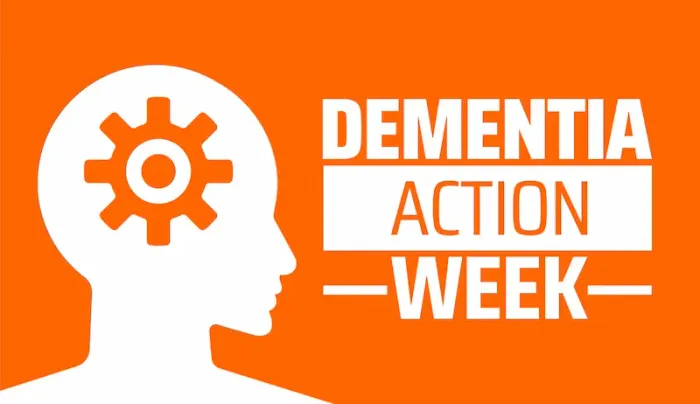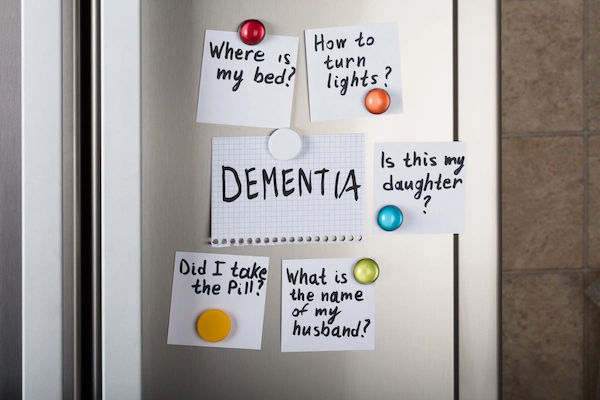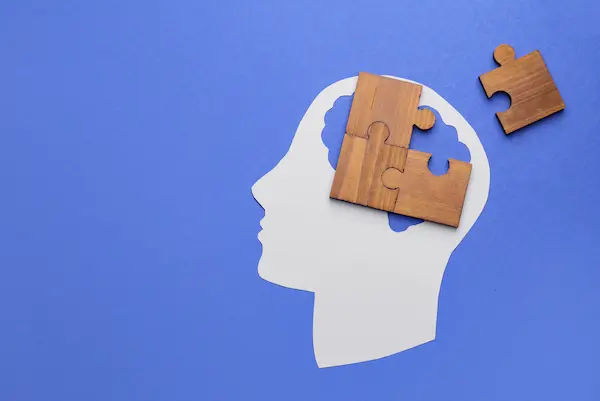Dementia Myths and Facts: Separating Truth from Fear
Know about the myths and facts on dementia, common types, what it is and top myths and fats on it.


Introduction
Dementia is a word that often evokes fear and uncertainty. Surrounded by misinformation and stigma, many people feel overwhelmed when faced with the possibility of a diagnosis, either for themselves or a loved one. This confusion can lead to delayed diagnosis, unnecessary anxiety, and a lack of proper support. The key to navigating this challenging journey is accurate information. By separating dementia myths from evidence-based facts, we can replace fear with understanding and compassion. This article aims to be your definitive guide, debunking the most common misconceptions about cognitive decline. We will explore what dementia truly is, tackle the top ten myths head-on with scientific facts, and provide actionable steps for promoting brain health and seeking help.
Understanding Dementia: More Than Just Memory Loss
Before we debunk the myths, it's crucial to understand what we're discussing. Dementia is not a single disease but rather an umbrella term for a range of symptoms associated with a decline in memory, reasoning, and other cognitive skills that are severe enough to reduce a person's ability to perform everyday activities.
Consult a Top Neurologist for Personalised Advice
What is Dementia? A Medical Overview
At its core, dementia is caused by damage to brain cells. This damage interferes with the ability of brain cells to communicate with each other. When brain cells cannot communicate normally, thinking, behaviour, and feelings can be affected. The brain has many distinct regions, each responsible for different functions (like memory, judgment, and movement). When cells in a particular region are damaged, that region cannot carry out its functions normally. Different types of dementia are associated with particular types of brain cell damage in specific regions of the brain.
Common Types of Dementia
1. Alzheimer's Disease: The most common cause of dementia, accounting for 60-80% of cases. It involves the buildup of proteins called amyloid plaques and tau tangles.
2. Vascular Dementia: The second most common type, occurring after a stroke or from blood vessel damage in the brain, which hinders blood flow.
3. Lewy Body Dementia: Associated with abnormal protein deposits (Lewy bodies) in the brain. Symptoms can include sleep disturbances, visual hallucinations, and movement issues similar to Parkinson's disease.
4. Frontotemporal Dementia: This type involves the breakdown of nerve cells in the frontal and temporal lobes of the brain, leading to changes in personality, behaviour, and language.
Top 10 Dementia Myths Debunked by Science
Myth 1: Dementia is a Normal Part of Ageing
This is perhaps the most pervasive and dangerous myth. While age is the biggest known risk factor, dementia is not an inevitable consequence of growing older. Many people live into their 90s and beyond without any significant signs of cognitive decline.
The Fact: Ageing vs. Disease
It's normal to experience occasional minor memory lapses as we age, like forgetting a name but recalling it later. Dementia, however, is a progressive disease of the brain. The symptoms are more severe and disruptive, impacting independent function. According to the World Health Organisation, only 5-8% of people over 60 have some form of dementia, meaning the vast majority do not.
Myth 2: Memory Loss Always Means Dementia
Many people panic when they misplace their keys, fearing it's an early sign of dementia. However, memory loss can be caused by a wide range of treatable conditions.
The Fact: Reversible Causes of Cognitive Decline
Conditions like vitamin B12 deficiency, thyroid problems, dehydration, urinary tract infections (especially in the elderly), side effects of medication, stress, anxiety, and depression can all mimic symptoms of dementia. These are often called "reversible dementias" because addressing the underlying cause can significantly improve or resolve the cognitive symptoms. If you or a loved one is experiencing persistent memory issues, it's crucial to consult a doctor for a thorough evaluation. A doctor online with Apollo24|7 can provide an initial assessment and guide you on the next steps, which may include specific blood tests. Apollo24|7 offers convenient home collection for tests like vitamin panels or thyroid function tests, making the process easier.
Myth 3: There's Nothing You Can Do After a Diagnosis
A diagnosis can feel devastating, leading to a sense of hopelessness. However, this is far from the truth. While most forms of dementia are currently incurable, they are manageable.
The Fact: The Power of Management and Support
Early diagnosis allows for interventions that can slow the progression of symptoms in some cases. Medications can help manage memory and cognitive symptoms for a time. Non-drug approaches like cognitive stimulation therapy, physical activity, and social engagement are also vital for maintaining quality of life. A diagnosis also allows individuals and families to plan for the future, access support services, and focus on living well.
Myth 4: Dementia is Inevitable if it Runs in Your Family
A family history does increase risk, but it does not guarantee you will develop the disease. This is a key point of confusion between familial and hereditary genes.
The Fact: Genetics vs. Lifestyle Factors
There are rare, directly inherited forms of dementia that are caused by deterministic genes, but these account for less than 1% of cases. For most people, family history represents an increased risk, not a fate. Lifestyle factors play an enormous role. Research shows that maintaining a healthy heart (controlling blood pressure, cholesterol), eating a balanced diet, staying physically and socially active, and not smoking can significantly reduce the risk of cognitive decline, even for those with a genetic predisposition.
Myth 5: Only Old People Get Dementia
While the majority of cases occur in those over 65, dementia can affect younger people.
The Fact: Understanding Early-Onset Dementia
Early-onset dementia (also called younger-onset) refers to cases where symptoms appear before the age of 65. It is estimated that there are tens of thousands of people living with early-onset dementia. The diagnosis can be particularly challenging as symptoms are often mistakenly attributed to stress, menopause, or relationship issues.
Proactive Steps: Reducing Your Risk and Planning Ahead
Empowerment comes from action. While not all dementia is preventable, you can take significant steps to support your brain health.
Lifestyle Choices for Brain Health
The same healthy habits that protect your heart also protect your brain. The Lancet Commission on Dementia identified 12 modifiable risk factors that, if addressed, could prevent or delay up to 40% of dementias. These include:
1. Getting regular physical exercise.
2. Eating a Mediterranean-style diet rich in fruits, vegetables, and whole grains.
3. Challenging your brain with new activities and lifelong learning.
4. Staying socially connected.
5. Managing cardiovascular risk factors like hypertension and diabetes.
When to Seek Professional Help?
It's important not to dismiss concerning symptoms. If you notice persistent or worsening changes in memory, thinking, or behaviour in yourself or a loved one, it's time to seek help. If symptoms persist beyond a few weeks and interfere with daily life, consult a doctor. A doctor from Apollo24|7 can help differentiate between normal ageing and something that requires deeper investigation.
Conclusion
Navigating the world of dementia requires replacing fear with facts. By debunking the common myths, we can foster a more compassionate and informed society—one that supports individuals and families facing this challenge rather than stigmatising them. Remember, dementia is a complex condition, but it is not an inevitable fate, and it is certainly not a journey that anyone should face alone. Empowerment comes from knowledge, proactive health choices, and knowing when to seek help. If this article has raised questions or concerns about your own brain health or that of a loved one, let it be the catalyst for a constructive conversation with a healthcare professional. Understanding the facts is the first step toward providing the best possible care and support.
Consult a Top Neurologist for Personalised Advice
Consult a Top Neurologist for Personalised Advice

Dr Debnath Dwaipayan
Neurosurgeon
9 Years • MBBS, MS(Gen. Surgery), DrNB (Neurosurgery)
Delhi
Apollo Hospitals Indraprastha, Delhi

Dr. Aditendraditya Singh Bhati
Neurosurgeon
21 Years • MBBS(2004), DNB Neurosurgery(2014); MNAMS; Fellow Skull Base Endoscopy (Italy), Fellow Extended Skull Base ( Weill Cornell, USA), Fellow ZAP-X Radiosurgery. Member of American Association of Neurological Surgeons
Delhi
Apollo Hospitals Indraprastha, Delhi
(100+ Patients)

Dr. Uddalak Chakraborty
Neurologist
8 Years • MBBS, MD(GENL.MED.),DM(NEUROLOGY)
Kolkata
MCR SUPER SPECIALITY POLY CLINIC & PATHOLOGY, Kolkata

Dr. Ganeshgouda Majigoudra
Neurologist
10 Years • MBBS, MD ( GENERAL MEDICINE) DM (NEUROLOGY)
Bengaluru
Apollo Clinic, JP nagar, Bengaluru

Dr. E Prabhakar Sastry
General Physician/ Internal Medicine Specialist
40 Years • MD(Internal Medicine)
Manikonda Jagir
Apollo Clinic, Manikonda, Manikonda Jagir
(150+ Patients)
Consult a Top Neurologist for Personalised Advice

Dr Debnath Dwaipayan
Neurosurgeon
9 Years • MBBS, MS(Gen. Surgery), DrNB (Neurosurgery)
Delhi
Apollo Hospitals Indraprastha, Delhi

Dr. Aditendraditya Singh Bhati
Neurosurgeon
21 Years • MBBS(2004), DNB Neurosurgery(2014); MNAMS; Fellow Skull Base Endoscopy (Italy), Fellow Extended Skull Base ( Weill Cornell, USA), Fellow ZAP-X Radiosurgery. Member of American Association of Neurological Surgeons
Delhi
Apollo Hospitals Indraprastha, Delhi
(100+ Patients)

Dr. Uddalak Chakraborty
Neurologist
8 Years • MBBS, MD(GENL.MED.),DM(NEUROLOGY)
Kolkata
MCR SUPER SPECIALITY POLY CLINIC & PATHOLOGY, Kolkata

Dr. Ganeshgouda Majigoudra
Neurologist
10 Years • MBBS, MD ( GENERAL MEDICINE) DM (NEUROLOGY)
Bengaluru
Apollo Clinic, JP nagar, Bengaluru

Dr. E Prabhakar Sastry
General Physician/ Internal Medicine Specialist
40 Years • MD(Internal Medicine)
Manikonda Jagir
Apollo Clinic, Manikonda, Manikonda Jagir
(150+ Patients)
More articles from Dementia
Frequently Asked Questions
1. What's the difference between Alzheimer's and dementia?
Think of dementia as an umbrella term for symptoms like memory loss and confusion. Alzheimer's is the most common specific disease under that umbrella, accounting for most cases. Other types include Vascular Dementia and Lewy Body Dementia.
2. Are there any early signs of dementia I should watch for?
Beyond forgetfulness, early signs can include difficulty with familiar tasks (like managing finances), confusion about time or place, problems with language (struggling to find words), changes in mood or personality, and withdrawal from social activities.
3. Can you prevent dementia?
While there's no guaranteed way to prevent it, you can significantly reduce your risk. Focusing on heart health through exercise and diet, staying mentally and socially active, avoiding smoking, and managing conditions like high blood pressure and diabetes are the most effective strategies known today.
4. Is dementia hereditary?
In most cases, no. Only a very small percentage of dementias are directly caused by inherited genes. Having a family member with dementia increases your risk slightly, but lifestyle factors are generally more influential.
5. What should I do if I'm worried about my memory?
The first step is to speak with your doctor. They can perform assessments to determine if your symptoms are related to dementia or another treatable condition, such as a vitamin deficiency or thyroid issue. Apollo24|7 makes it easy to schedule an online consultation to discuss your concerns from home.




